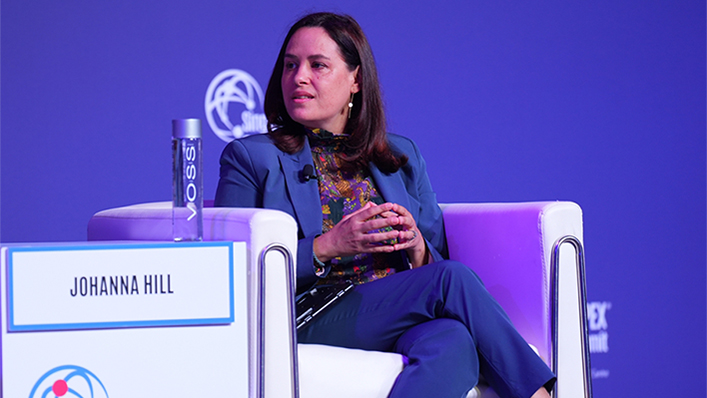
DDG Hill highlighted the resilience of international trade in the face of polycrises over the last few years. At the end of 2023, merchandise trade in real terms was 6% above its pre-pandemic peak and up 19% compared to 2015. According to the WTO’s recent trade forecast, global goods trade is expected to gradually recover by increasing 2.6% this year after a 1.2% contraction in 2023.
Moreover, she said, the average trade weighted most-favoured nation (MFN) tariff level fell by 8.3% between 2015 and 2022, which was a tumultuous period in international trade. These figures illustrate that, despite headwinds, international trade remains the pathway for economic growth, development, and a source of economic stability.
DDG Hill acknowledged that the multilateral trading system remains under pressure from geopolitical tensions and policy uncertainty. While it may be too early to talk about decoupling or de-globalization, trade flows are showing the first signs of fragmentation along geopolitical lines.
She cited data from the WTO’s 2024 Global Trade Outlook and Statistics, showing that bilateral trade between the United States and China grew 30% more slowly since 2018 than their trade with the rest of the world. Since 2022, the year that Russia’s war with Ukraine began, goods trade flows between hypothetical geopolitical blocs(1) have grown 4-6 per cent more slowly than trade within these blocs. The situation on the ground confirms this data: companies are moving production and diversifying their supply chains to withstand economic shocks.
DDG Hill shared her view that certain areas of international trade, especially those poised to shape the competitive advantage of tomorrow, such as emerging technologies and data, are the subject of increased focus.
In this complex geopolitical landscape, DDG Hill said the WTO is key to maintaining trade’s role in supporting growth and development while helping address emerging challenges. She added that we need to recognize members’ concerns amid heightened geopolitical tensions. In light of these challenges, DDG Hill stressed the importance of dialogue among major economic players. In her view, the WTO remains a natural forum for such discussions.
The panel discussion was organized by the Singapore Business Federation in cooperation with the Hinrich Foundation. Michaela Browning, CEO of Asia-Pacific in the Brunswick Group, and Hafimi Abdul Haadii, Executive Director of LVK Group of Companies, also participated in the discussion.
Share
Reach us to explore global export and import deals